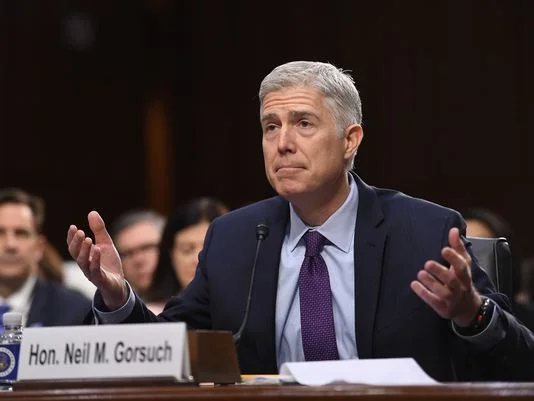Why U.S. Politics Actually Needs More People with Opinions By Luke Perry
Senator Minority Leader Schumer announced yesterday that he will support Democratic efforts to filibuster the nomination of Neil Gorsuch. Democrats are miffed at being outmaneuvered by Majority Leader McConnell, who refused to have a hearing for President Obama’s nominee Merrick Garland. This bold move mobilized support behind Donald Trump and enabled a Republican president to now fill Antonin Scalia’s vacant seat.
Remarkably, 23 percent of Americans currently have “no opinion” on whether or not they support Gorsuch’s nomination. This is spot on the average of 23 percent of Americans who have had “no opinion” on whether to confirm Justices over twenty five years from Gorsuch back to Clarence Thomas. Moreover, 57 percent of Americans are unable to name a single Supreme Court justice, yet 90 percent believe that the Court’s decisions impact their everyday lives.
In some ways this is what the Framers envisioned. The Supreme Court was designed to be insulated from politics. Appointment is a shared power so Justices are not beholden to one person or group.
At the same time, democracy requires an educated citizenry. Most Americans have little interest and knowledge about politics, likely explaining the reluctance to take a stand when polled about a Supreme Court confirmation hearing.
Not surprisingly, Americans were more opinionated when it came to the presidential campaign. Two weeks before the election 15 percent of voters were undecided, though this was up from the 5 percent at the same point in the 2012 campaign.
Americans are similarly ambivalent on the American Health Care Act. 26 percent were undecided on the bill yesterday when the House vote was originally scheduled. The Whip count pointed to failure, resulting in an unusual up or down vote today without certainty the bill will pass.
Healthcare policy is complicated, as even President Trump acknowledged, yet a basic and vital consideration for all Americans. Having some understanding of how the Affordable Care Act compares to the American Health Care Act is in everyone’s self-interest and beneficial for society as the federal government actively debates related policy.
Similarly, reserving judgment about something you don’t know is wise. Being unable to judge if someone should have the ultimate power to interpret the Constitution is not, particularly when the significance of this power is widely recognized.
Americans are very comfortable blaming government for failing to meet pressing challenges, but less comfortable blaming themselves. Elected officials deserve partial blame, but so do citizens, a significant portion of whom have not put themselves in a position to keep them accountable.
Luke Perry (@PolSciLukePerry) is Chair and Associate Professor of Government at Utica College.





